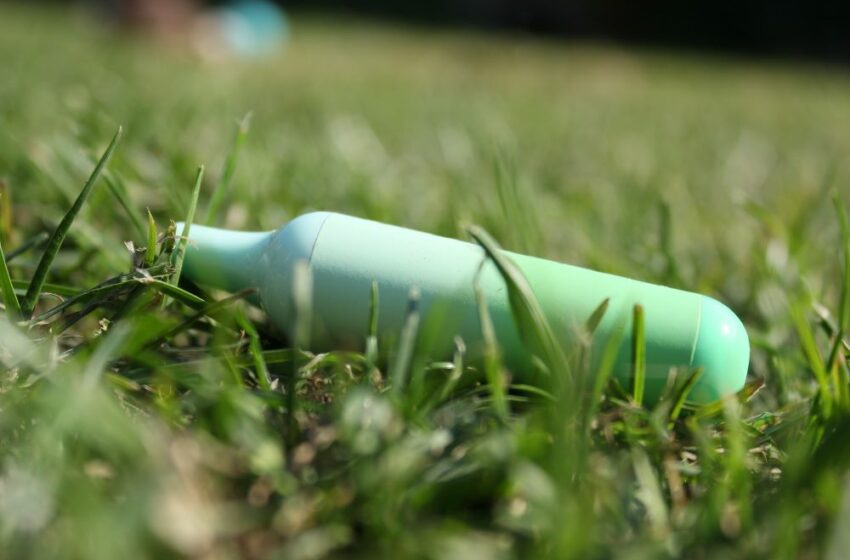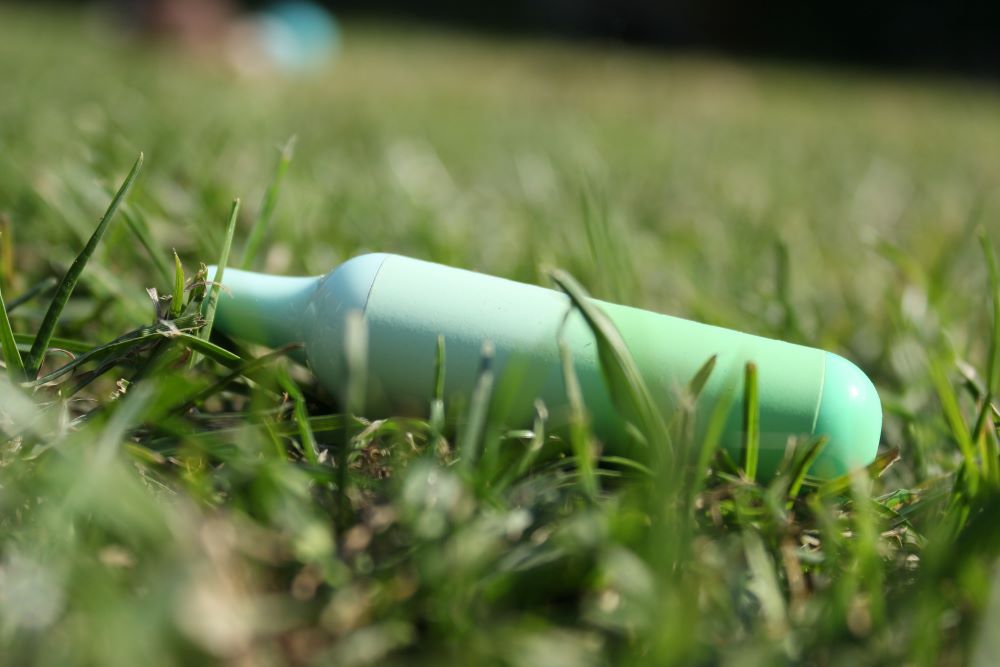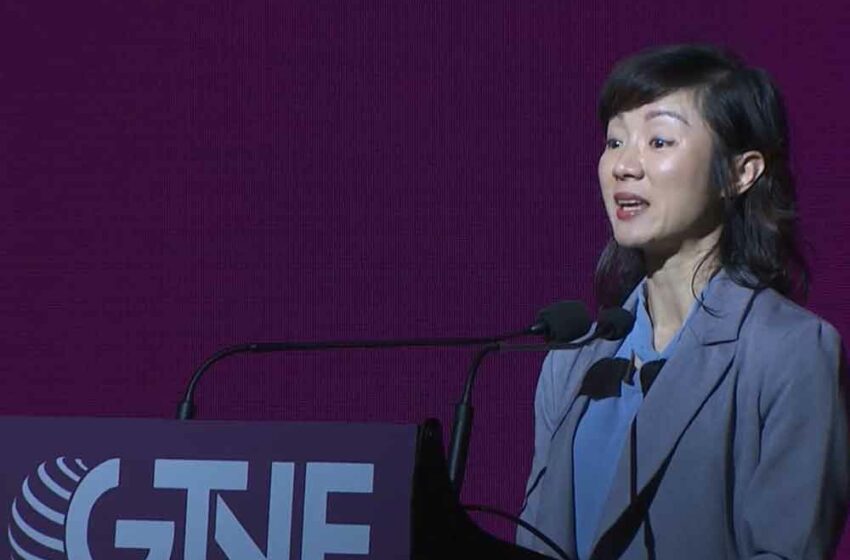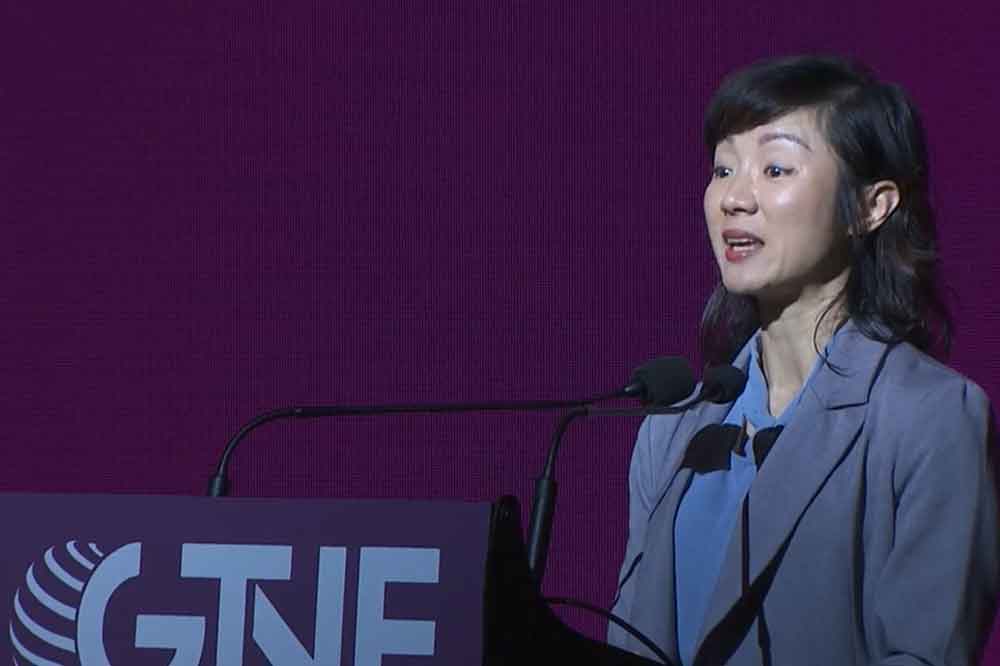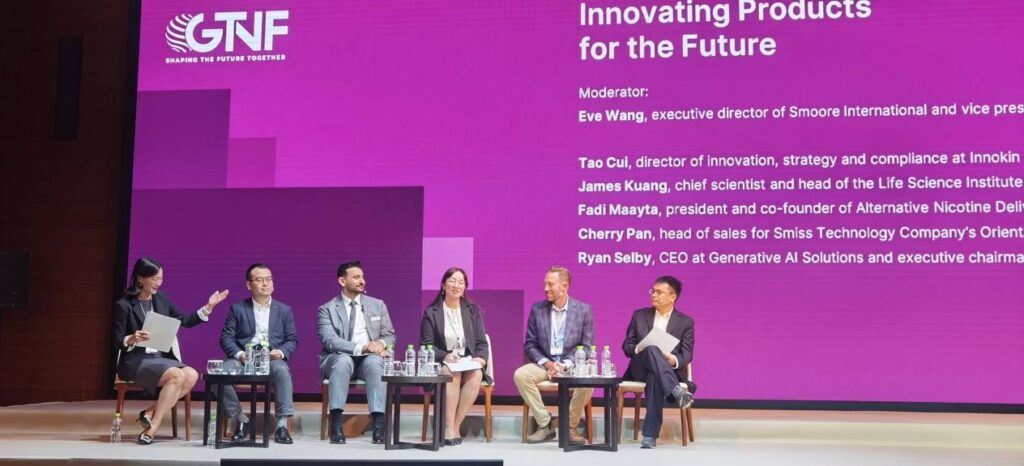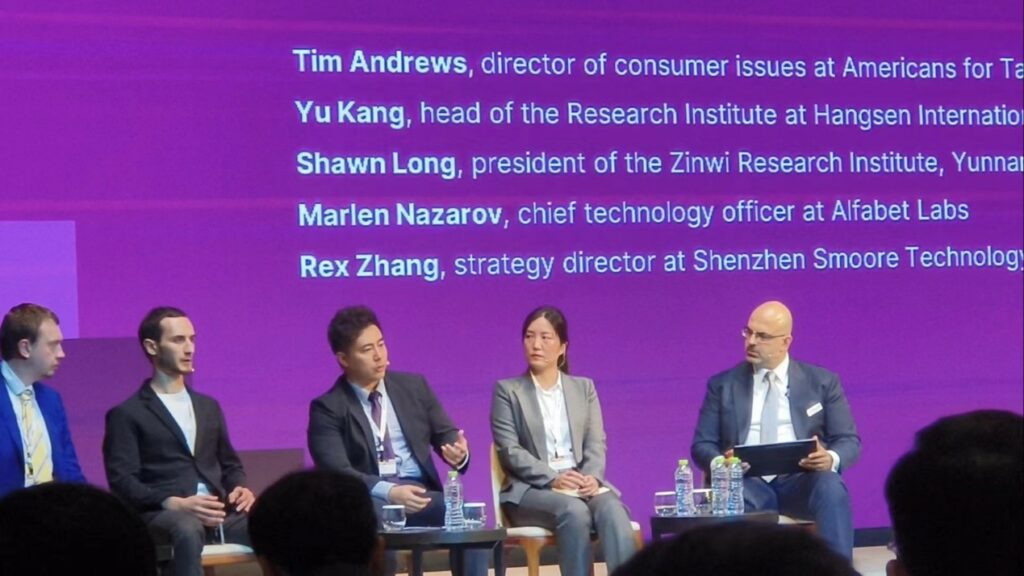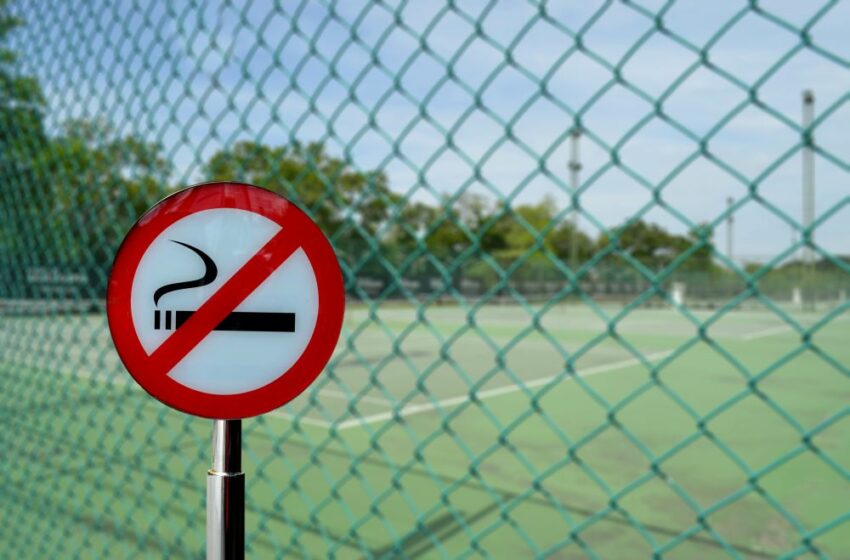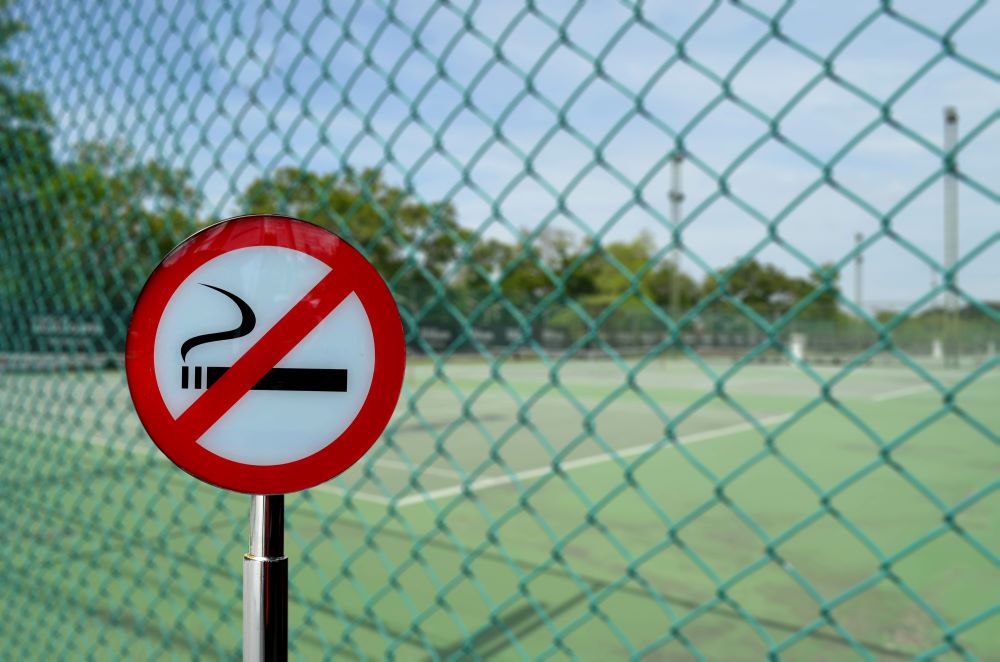A Golden Leaf Award and keynote presentation highlight the company’s investments in cutting-edge vaping technology.
At the recent Global Tobacco & Nicotine Forum in Seoul, Smoore earned a Golden Leaf Award and proposed a framework to help the industry “innovate through challenges.”
The atomization company was recognized for its Vaporesso COSS, which stands for “Convenient Operating and Smart Supplying,” according to Smoore.
“One of the major pain points for vapers is the trade-off between e-liquid or battery endurance and convenience,” explained Smoore Vice President Eve Wang upon receiving the award. “Typically, the longer it lasts, the less convenient it becomes. That is why COSS was introduced. It keeps you powered up and well-supplied with its smart supplying system. Additionally, thanks to its coil-e-liquid separation design, it’s also leak-resistant, ensuring a fresh puff every time.”
In thanking the GLA judges, Wang promised Smoore would keep pushing forward and innovating.
The company’s commitment to innovation was also demonstrated in Wang’s keynote speech at GTNF.
She started by giving an overview of development of vapor products over the past 20 years and summarizing the biggest current challenges—preventing underage vaping and minimizing the environmental impact of vaping products.
According to Wang, vaping efficiency is a combination of atomization efficiency and power efficiency. “For atomization efficiency, there are several key factors to be considered, such as e-liquid supply, the physical and chemical process atomization, as well as the technology for aerosol generation and distribution,” she explained.
“We have seen some promising results in these areas,” she said. “If we translate it into consumer benefits, atomization efficiency is fully utilizing e-liquid for good taste, more puffs and improvement in cost effectiveness. Power efficiency translates into increased energy density; therefore we are able to reduce the battery size as small as possible. It means less impact to the environment and a longer life cycle.”
Wang then shared the contributions to vaping efficiency made by Smoore’s Feelm Max, Feelm Air and Power Alpha products.
She concluded her speech by encouraging stakeholders to keep innovating and evolving the technology to improve harm reduction, cost-effectiveness and sustainability, along with providing a better user experience. Wang urged her audience to harness collaborations in innovation and social responsibility to achieve a balanced solution between regulation and user experience. Following her speech, Wang moderated a panel titled “Innovating Products for the Future.”



